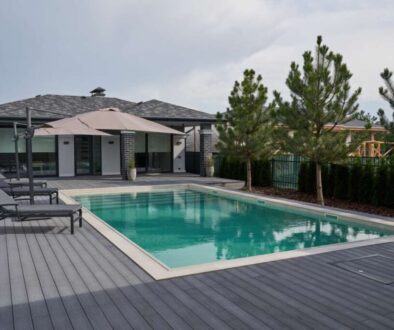Learn how to efficiently schedule commercial and residential pools to maximize your service capacity and improve customer satisfaction.
How to Schedule Commercial and Residential Pools Without Conflict
Scheduling pool maintenance for both commercial and residential properties can be a complex task, especially when trying to avoid conflicts and ensure customer satisfaction. As the demand for pool services increases, it becomes critical to manage your time and resources effectively. This blog post will explore various strategies and best practices to help pool service professionals schedule their appointments seamlessly. We will dive into tools, tips, and insights that can assist in managing both types of pool schedules to prevent overlapping and ensure smooth operations.
Through understanding the nuances of scheduling, service providers can not only streamline their operations but also enhance client relations, ensuring that both residential and commercial customers receive the attention they deserve. By the end of this article, you will have a comprehensive understanding of the scheduling dynamics in the pool service industry and the tools that can help you succeed.
Understanding the Scheduling Needs of Commercial and Residential Pools
Every pool service operation must understand the unique scheduling needs of both commercial and residential pools. Commercial pools often require more frequent servicing due to higher usage rates, while residential pools can vary greatly in their maintenance needs based on size, location, and the owner’s preferences.
- Commercial Pools: These pools might be located in hotels, community centers, or gyms, and typically demand regular cleaning and maintenance to meet health regulations. They may also require chemical balancing and equipment checks on a strict schedule.
- Residential Pools: The maintenance schedule here can be more flexible, often dictated by the homeowner’s preferences or seasonal usage patterns. Homeowners may opt for weekly, bi-weekly, or monthly services based on their specific needs.
According to industry statistics, commercial pools may require maintenance visits 2-3 times a week, whereas residential pools typically see weekly visits. Recognizing these differences is essential when creating a scheduling system that accommodates both types of clients effectively.
Utilizing Scheduling Software to Avoid Conflicts
In today’s digital age, there are numerous scheduling software options available that can significantly reduce scheduling conflicts. These tools can help in managing appointments, tracking service history, and even sending automated reminders to clients.
Some popular scheduling software options include:
- Jobber: This platform offers seamless scheduling capabilities, allowing you to organize appointments based on location and client needs. It can also send reminders to clients, ensuring they are aware of upcoming services.
- Housecall Pro: This tool is tailored for service industries and includes features such as online booking and calendar management, minimizing the chances of double-booking.
- ServiceTitan: Known for its robust scheduling capabilities, ServiceTitan can manage both commercial and residential appointments efficiently, helping you keep your calendar organized.
Using these tools not only reduces the chance of conflicts but also enhances client communication, thereby improving overall service satisfaction. For pool service businesses looking to expand into new territories such as Florida or Texas, choosing the right scheduling software is crucial to growth and operational efficiency.
Implementing a Block Scheduling System
A block scheduling system can be particularly effective for pool maintenance providers. This method involves organizing your appointments into time blocks dedicated to either residential or commercial services for specific regions. For example, you may decide to schedule all commercial pool services in the morning and reserve the afternoons for residential pools. This approach allows for more efficient travel routes and minimizes downtime.
When implementing a block scheduling system, consider the following:
- Define Service Areas: Create clear service areas for both residential and commercial pools. This will help in grouping clients together geographically, reducing travel time and increasing productivity.
- Assess Pool Needs: Understand the specific maintenance requirements for each pool type. For instance, a commercial pool may need comprehensive care involving a detailed checklist, while a residential pool may require less intensive upkeep.
- Communicate with Clients: Inform your clients about your scheduling system. This transparency can set expectations and enhance their appreciation for your time management efforts.
Implementing this sort of system has proven to be beneficial for many pool service companies, allowing them to manage their time effectively while also catering to the unique needs of their clients.
Creating a Priority System for Emergency Services
In the pool service industry, emergencies can arise that require immediate attention, such as equipment failure or water quality issues. Establishing a priority system for such instances is vital for maintaining a high level of customer service.
Here’s how to set up an effective priority system:
- Define Emergency Criteria: Outline what constitutes an emergency in your service agreements. This could include severe equipment malfunctions, water quality alerts, or health and safety concerns.
- Dedicated Emergency Slots: Reserve specific time slots in your schedule for emergency calls. This ensures you can respond quickly while minimizing disruption to your regular service appointments.
- Communicate Availability: Make sure your clients know how to reach you in case of an emergency and the expected response time.
Having a priority system in place not only ensures that critical issues are addressed promptly but also builds trust with your clients, as they know they can rely on you in urgent situations.
Utilizing Customer Feedback to Improve Scheduling
Another effective strategy for optimizing your scheduling process is to solicit feedback from your customers. Understanding their experiences and preferences can help you make informed decisions about your scheduling practices.
Consider implementing these methods to gather feedback:
- Surveys: After each service, send out a short survey asking clients about their scheduling experience and any suggestions for improvement.
- Follow-Up Calls: Personal follow-up calls can provide insights into client satisfaction and reveal areas where your scheduling might need adjustment.
- Review Platforms: Monitor online reviews to gauge how your scheduling has affected customer perceptions and satisfaction.
Using this feedback, you can adjust your scheduling practices to better meet your clients’ needs, ultimately leading to improved retention and customer loyalty.
Best Practices for Scheduling Pool Services
To further enhance your scheduling processes, consider these best practices:
- Consistent Scheduling Days: Maintain a consistent schedule for regular clients, which helps them remember their service dates and aids your planning.
- Buffer Time: Implement buffer times between appointments to allow for unexpected delays or extended service needs without throwing off your entire day.
- Regularly Review Your Schedule: Periodically assess your scheduling efficiency and make adjustments as necessary. This includes understanding peak times for service requests and adjusting staffing levels accordingly.
Incorporating these best practices will not only streamline your scheduling process but also optimize your service delivery, allowing you to take on more clients without sacrificing quality.
Conclusion
Scheduling commercial and residential pools without conflict is a crucial aspect of running a successful pool service business. By understanding the unique needs of both client types, utilizing effective scheduling tools, and implementing structured systems, you can optimize your operations and improve customer satisfaction.
The significance of efficient scheduling cannot be overstated, as it directly influences your business’s reputation and profitability. As you explore options or consider diving deeper into the pool maintenance industry, remember that effective scheduling is key to your success. For those interested in expanding their services through acquiring established routes, consider checking out [Pool Routes for Sale](https://pool-routes-for-sale.com/) for potential opportunities.
Take action today by reviewing your scheduling processes, gathering feedback from clients, and using the right tools to elevate your business to new heights. Let’s ensure that both your commercial and residential clients receive the reliable service they expect and deserve.



